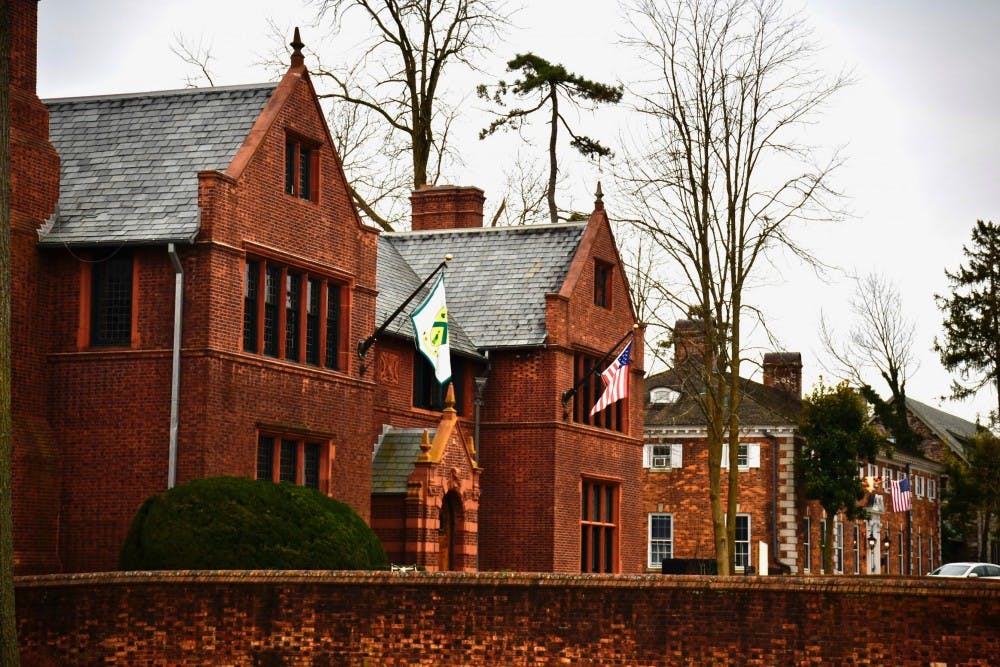The other day, a close friend reintroduced me to Lana Del Rey’s devastating, beautiful single “Summertime Sadness” (2012), which narrates the summer-symbolizing suicide of two lesbian lovers. As many have noted, the notion of summertime sadness feels oxymoronic, given our culture’s association of winter with depression and summer with eroticized, sun-soaked ecstasy. But summertime melancholy is indeed an extraordinarily real experience for those prone to depression and loneliness. The times when it seems most people are having a ball — a perception informed by beachy Instagram pictures and other modern mechanisms of misleading self-presentation — are often the most excruciating for the isolated.
The notion of summertime sadness is all too relevant to the Princeton social scene. Some of the most ostensibly joyous occasions of the Princeton calendar — namely, the culmination of Bicker and Greek life initiations, when some Princetonians find tight-knit communities and concurrent opportunities for partying and interpersonal intimacy — are also the most painful.
During these festivities, it’s easy to inadvertently — or intentionally — forget that many other Princetonians are locked up in their dorms, enduring the trauma of being left out, of being denied the sort of social intimacy human beings inherently crave, while their peers get to play hard. Yes, I realize those who are cut from certain fraternities or sororities can usually find other Greek organizations who are willing to include them; likewise, I realize those who are denied Bicker club membership can join a sign-in club. But these measures are simply pseudo-restorative, insufficient remedial Band-Aids in response to systems put in place to ruthlessly designate a Princetonian’s social position.
Last month, as many sororities and fraternities selectively offered membership to Princetonians who rushed, a classmate lamented on Tiger Confessions, “I looooooove bid day[,] when the fact that a group of girls made an arbitrary decision about your self-worth gets shoved in your face all day.” Yet, even as some students endured socialized stress and alienation, Greek life members celebrated the end of rush by taking to the Street.
Of course, the Greek life and Bicker club members out on the Street having a good time are not sadistic people or worthy of unique judgement. Undoubtedly, both the included and the excluded — all Princetonians, in other words, very much including myself — are, to varying degrees, complicit in the workings of Princeton’s competitive, hierarchical social scene. It’s also worth noting that the vast majority of Princetonians I have had the privilege of befriending, no matter their eating club or Greek life affiliations, are deeply kind and admirably moral people.
Still, exclusion and marginalization thrive when good people lose sight of their arbitrary social capital or become desensitized to the suffering of their peers who haven’t accumulated such capital. “Summertime sadness” at Princeton is a double-edged tragedy: the victims are stung both by social alienation and the relative apathy of those who’ve never experienced the psychic torment of isolation.
At the end of the day, there may be no realistic solution to systematized marginalization at Princeton. To me, a campus without Bicker and Greek life seems like a healthier one — in a previous Prince column, I called for the wholesale abolition of Bicker. But, admittedly, I could very well be wrong: such drastic reforms are likely implausible and could have substantial unintended consequences.
Nonetheless, there’s a litany of exhaustingly well-documented reasons why Greek life and Bicker are unjustifiable, and they deserve consideration. Here’s several: these processes de facto discriminate on the basis of identity, economic standing, and campus affiliation and create social cleavages along these lines; they break up friendships and create an environment of resentment and envy; they designate social worth in the most arbitrary and inordinately hurtful of fashions; they’re unnecessary for the basic functioning of the University; and, most harrowingly, they reinforce the epidemic of relational transactions and sexual violence on campus.
Many of us aren’t even willing to imagine a social landscape without Bicker and Greek life, as if Princeton wouldn’t be Princeton without these institutions. Sadly, they may have a point. Given the social structure of Princeton life, a campus without Bicker or Greek life would radically disrupt sacralized traditions and uproot uber-naturalized University mores. It’s much easier to make a negative argument against Bicker and Greek life than it is to make positive assertions about what could replace such phenomena.
At the very least, though, we should acknowledge that the continued practice of Bicker and Greek life is a conscious choice that we, as a student body, make. There’s nothing from stopping us from imagining and eventually creating a social scene without these exclusionary traditions — nothing except our own unwillingness to confront our collective complicity in an inequitable system.
Samuel Aftel is a senior from East Northport, N.Y. He can be reached at saftel@princeton.edu.









